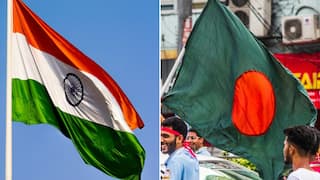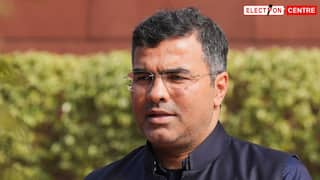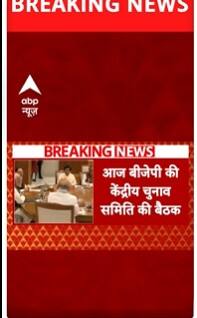Marylebone Cricket Club Suggests Reduction Of ODI Cricket After 2027 World Cup
The MCC group also proposed the establishment of strategic funds to protect Test cricket and encourage the growth of women's cricket.

The Marylebone Cricket Club's (MCC) World Cricket Committee (WCC) has proposed a significant reduction in the number of bilateral ODI matches following the 2027 World Cup. The thirteen-member committee suggests "removing bilateral ODIs, other than in the one year preceding each World Cup."
The MCC has proposed reducing men's bilateral ODI cricket after the 2027 World Cup, questioning the format's utility in an already overcrowded calendar. The MCC's World Cricket Committee convened on the margins of the recent Ashes Test at Lord's and concluded that something needs to go in a world with increasing franchise T20 competitions all year.
The thirteen-member committee that is led by former England captain Mike Gatting, is expectant that: "a scarcity of ODI cricket would increase the quality, achieved by removing bilateral ODIs, other than in the one year preceding each World Cup. This would, as a consequence, also create much-needed space in the global cricketing calendar."
The International Cricket Council is set to hold a very important meeting of its Chief Executives Committee in Durban on Wednesday to prepare a draft on the men’s Future Tours Programme (FTP) from 2028 onwards, the esteemed Marylebone Cricket Club’s World Cricket Committee (WCC) has been advocating the opinion that: “men’s ODIs be significantly reduced following the completion of the 2027 World Cup.”
For some time, the ICC and its various members have been wrestling with this dilemma. Jason Roy is forsaking a portion of his incremental contract with England to play in the Major League Cricket (MLC) in the United States. Trent Boult turned down a central contract with New Zealand last year, and the IPL has extended into a two-month window, with franchises also purchasing teams in other leagues, raising the likelihood of players being offered year-round T20 contracts.
Setting up funds for Test Cricket and Women’s game
The MCC group also proposed the establishment of strategic funds to protect Test cricket and encourage the growth of women's cricket. The committee has emphasised the growing gap between nations, pointing out that the existing system greatly favours a small number of dominant teams. Without assistance, this could jeopardise the international game's general development and benefit.
"The committee voiced particular concern for the survival of Test cricket in nations outside of India, Australia and England, with the associated impact brought about by a narrowing competition pool," mentioned the MCC release.
Committee gave recommendations for ICC to undertake "Test match financial audit," which would help it "identify nations in need of support in order to sustain a Test match programme," following which "this need could be a subsequently addressed via a separate Test match fund, established to protect the sanctity of Test match cricket."
"The committee continues to hear of the growing unaffordability to host men's Test match cricket in many nations and concluded that the game currently lacks quantifiable data on the costs of hosting a Test match across its member nations. To address this lack of insight, it proposed a recommendation for the ICC to undertake a Test match financial audit to provide a clearer picture. This audit of operational costs versus commercial return would help the ICC identify nations in need of support in order to sustain a Test match programme. This need could be subsequently addressed via a separate Test fund, established to protect the sanctity of Test match cricket," mentioned the MCC release.
The committee also advocated global steps to foster the growth of women's cricket, and it claimed that each nation must commit to investing in women's cricket and fielding a women's team, a direct reference to Afghanistan, where women's cricket is forbidden.
"It believes that the best way to support this objective is to establish a substantial and ring-fenced ICC Strategic Fund that can be allocated on a need-to-know basis to full member and associate nations that, amongst other key initiatives, fully commit to their women's pathway and national team," it was added.
Trending News
Top Headlines




































